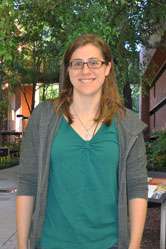History
“Profit and Philanthropy: Baltimore Through the Eyes of Joseph Townsend”

My research will study the relationship between public philanthropy and private financial success in early national Baltimore, as manifested in the particular case of Joseph Townsend (1756-1841), a prominent Quaker businessman. From his arrival in the city in 1783 until his death in 1841, Townsend was involved in several business endeavors, such as the foundation and management of the Baltimore Equitable Society (the city’s oldest insurance company). At the same time, he was involved in various charitable, philanthropic, and municipal institutions, such as the Board of Special Commissioners (who laid out and maintained the city’s roads and bridges), the Maryland Society for Promoting the Abolition of Slavery (the oldest anti-slavery society in Maryland), and the Board of Health (which dealt with the devastating yellow fever epidemics of 1794, 1797, and 1800). I intend to study Townsend’s life as a way of examining how civic service coexisted with, facilitated, or was supported by financial enterprise in the particularly dynamic and ever-changing landscape of early Baltimore. The study of men such as Joseph Townsend is crucial to understanding the nature of early Baltimore society, as men such as he had their hands in nearly every corner of Baltimorean life; yet, such study must combine recognition of their truly history-making contributions with a willingness to consider the possibility of the self-serving motives behind them. By conducting my research, I hope to produce a more scholarly, more in-depth, and likely more gritty and critical study of early Baltimore and the men who helped create it.
Is this your first independent research project?
No; this project actually grew out of a research position with the Baltimore Equitable Insurance Company, who were looking in the summer of 2012 for students to do research on their early directors, including Joseph Townsend. This translated into an Independent Study course in the Fall of 2012, and I’ve been continuing this work through the Spring and look to finish compiling my research during the Summer of 2013.
How did you know this was the project you wanted to do?
I had been researching Townsend along with several other Baltimore businessmen for my work with Baltimore Equitable, but I became particularly interested in Townsend once I began learning about his life. He was a key player in several of Baltimore’s major historical events, and was even involved in a few scandals, and yet no one seems to know him. I knew once I had learned so much about his life through my BEI research that I could not leave this fascinating subject alone; I wanted to learn more about how he fit into Baltimore society and how he came to leave the legacy that he did.
How did you find your mentor for your research?
Dr. Kars was instrumental in helping me connect with Baltimore Equitable when they were looking for students to research their early history. She has helped me with my research from the beginning, and was my mentor in Fall 2012 when my research became an Independent Study course. She has helped me so much during my time working with Baltimore Equitable, and so it was only natural that I ask her to be my mentor for this project, which has grown out of that work.
What has been the hardest part about your research?
For my research, it has been difficult just to sift through all the information available to me. Living so close to Baltimore and having access to the Baltimore Equitable Collection and other collections at the Maryland Historical Society, as well as the Arnold Maryland History Collection at the UMBC Special Collections, and many of College Park’s libraries, there is certainly no dearth of information for me to find! The trouble is finding the most useful or most interesting pieces of information and fitting them together – making an engaging story out of the mountains of facts.
What else are you involved in on campus?
I am a student assistant at our Library’s Special Collections, and am very proud member of the UMBC Catholic Retrievers, as well as of the History Student Council and National Society of Collegiate Scholars.
What is your advice to other students about getting involved in research?
Trust me – there is room for it! I was worried going into my research that I wouldn’t be able to handle it with a full course load and a job, but it has been really fulfilling, and I would encourage any student considering pursuing a research project not to be intimidated with the thought of extra work. It’s well worth it, and is a great way to break out of the routine of classes and create new scholarship in addition to studying others!
7/17/2013